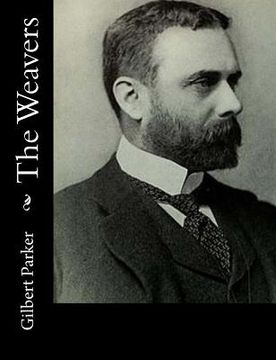Reseña del libro "The Weavers (en Inglés)"
The village lay in a valley which had been the bed of a great river in the far-off days when Ireland, Wales and Brittany were joined together and the Thames flowed into the Seine. The place had never known turmoil or stir. For generations it had lived serenely.Three buildings in the village stood out insistently, more by the authority of their appearance and position than by their size. One was a square, red-brick mansion in the centre of the village, surrounded by a high, redbrick wall enclosing a garden. Another was a big, low, graceful building with wings. It had once been a monastery. It was covered with ivy, which grew thick and hungry upon it, and it was called the Cloistered House. The last of the three was of wood, and of no great size-a severely plain but dignified structure, looking like some council-hall of a past era. Its heavy oak doors and windows with diamond panes, and its air of order, cleanliness and serenity, gave it a commanding influence in the picture. It was the key to the history of the village-a Quaker Meeting-house.Involuntarily the village had built itself in such a way that it made a wide avenue from the common at one end to the Meeting-house on the gorse-grown upland at the other. With a demure resistance to the will of its makers the village had made itself decorative. The people were unconscious of any attractiveness in themselves or in their village. There were, however, a few who felt the beauty stirring around them. These few, for their knowledge and for the pleasure which it brought, paid the accustomed price. The records of their lives were the only notable history of the place since the days when their forefathers suffered for the faith.One of these was a girl-for she was still but a child when she died; and she had lived in the Red Mansion with the tall porch, the wide garden behind, and the wall of apricots and peaches and clustering grapes. Her story was not to cease when she was laid away in the stiff graveyard behind the Meeting-house. It was to go on in the life of her son, whom to bring into the world she had suffered undeserved, and loved with a passion more in keeping with the beauty of the vale in which she lived than with the piety found on the high-backed seats in the Quaker Meeting-house. The name given her on the register of death was Mercy Claridge, and a line beneath said that she was the daughter of Luke Claridge, that her age at passing was nineteen years, and that "her soul was with the Lord."Another whose life had given pages to the village history was one of noble birth, the Earl of Eglington. He had died twenty years after the time when Luke Claridge, against the then custom of the Quakers, set up a tombstone to Mercy Claridge's memory behind the Meeting-house. Only thrice in those twenty years had he slept in a room of the Cloistered House. One of those occasions was the day on which Luke Claridge put up the grey stone in the graveyard, three years after his daughter's death. On the night of that day these two men met face to face in the garden of the Cloistered House. It was said by a passer-by, who had involuntarily overheard, that Luke Claridge had used harsh and profane words to Lord Eglington, though he had no inkling of the subject of the bitter talk. He supposed, however, that Luke had gone to reprove the other for a wasteful and wandering existence; for desertion of that Quaker religion to which his grandfather, the third Earl of Eglington, had turned in the second half of his life, never visiting his estates in Ireland, and residing here among his new friends to his last day. This listener-John Fairley was his name-kept his own counsel. On two other occasions had Lord Eglington visited the Cloistered House in the years that passed, and remained many months. Once he brought his wife and child.

